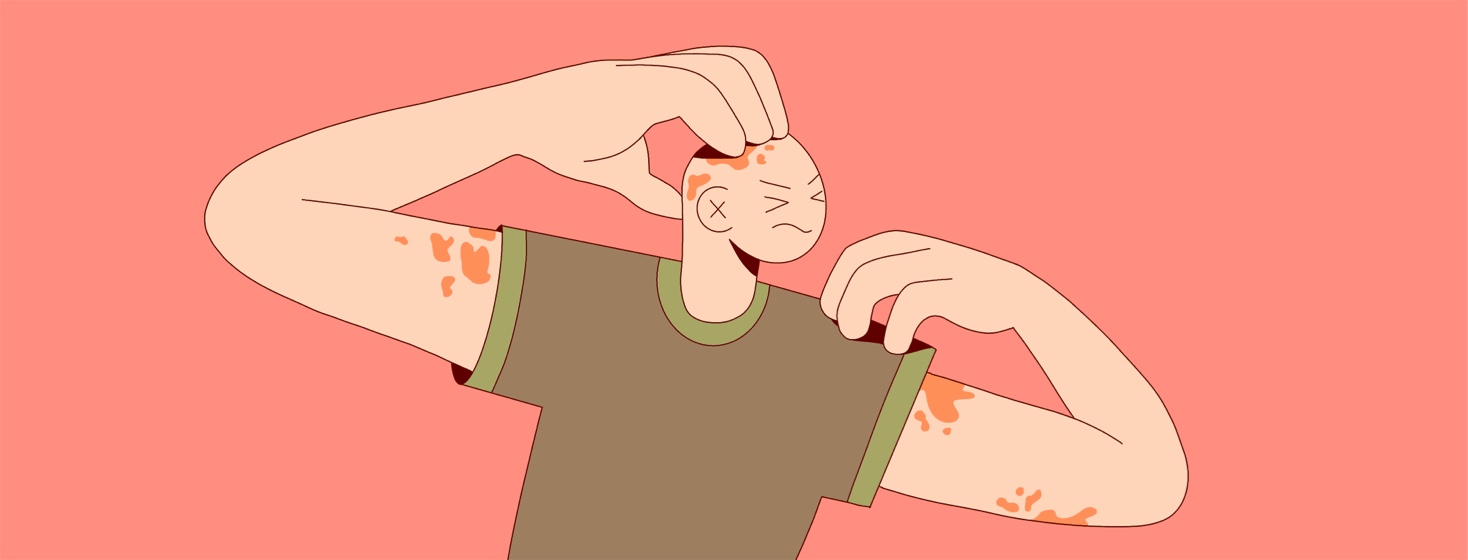Pruritus: Severe Itching From Hepatitis C
Pruritus is a term for severe itching of the skin. It has many causes and hepatitis C is one of those causes in approximately 20% of patients with late-stage disease. Itching may also happen to patients with less liver scarring and early stage disease and the reasons for that are not clear. This article breaks down how to identify and treat severe itching from hepatitis C.
Post your question
What is pruritus?
Many patients claim that the itching is more uncomfortable than pain. Itching and pain are transmitted to the brain by the same nerves. They are closely related. The itching may be localized to the hands and feet, or may be more widespread. Sometimes it feels like the patient's internal organs are itching. It may become so uncomfortable and unrelenting that patients develop suicidal ideation.
It is believed that pruritus in hepatitis C patients with cirrhosis is caused by an accumulation of toxins that the liver cannot eliminate. Instead of the toxins being removed by the liver, they accumulate in the bloodstream and cause jaundice and severe itching. Bilirubin is one of those toxins that cause pruritus. As the bilirubin rises, due to scarring in the liver, there is a buildup of bile and bilirubin in the blood. There are other causes of pruritus such as certain cancers, autoimmune diseases and even drug reactions. Itching may also develop in hepatitis C patients who are not in the later stages of the virus. Sometimes this is due to dry skin or the effects of the treatments for the virus. This is not as severe and is not like pruritus caused from late stage liver disease. Itching may actually be the only a symptom of hepatitis C. If a patient complains of constant itch with no known explanation, the physician should consider antibody testing for viral hepatitis.
Treatment options
When pruritus becomes severe, it disrupts the patient’s life. Sleeping problems may occur as pruritus seems to be worse at night. Scratching may cause skin infections, and it does not work to relieve itching from hepatitis C. There are treatments that help alleviate the constant itch. Gabapentin, a medication used for nerve pain, is sometimes helpful. Antidepressants are often prescribed, such as sertraline, amitriptyline, imipramine and paroxetine. Benadryl, an over-the-counter antihistamine often is helpful and is considered a very liver-friendly drug. Bile acid binders like Questran and Colestid help take the bile acids out of the blood and give relief to some people. Opiate agonists such as Narcan, Revia, and Revex may be used successfully. Actigall and Zofran may be prescribed, as well. There are drugs to control itching in trial. Patients may be placed on the liver transplant list as a transplant will cure pruritus.
Tips for stopping the itch
Below are some tips that may help control the incessant itching:
- Do not take hot showers, they bring out the histamines and make itching worse.
- Do not smoke.
- Instead of scratching rub gently. Use an ice cube.
- Stay well hydrated
- Use creams instead of lotions. They seem to be more effective.
- Use moisturizers.
- Use mild soaps such as cetaphil or non toxic products such as those made by Ava Anderson.
- Take oatmeal baths but do not make the water too hot.
- Wear loose fitting clothes. Cotton is a cool fabric.
- Do not become overheated.
- Try milk thistle with your doctor’s permission.
- Use an ice pack to cool the itchy parts of your body.
- Stay out of the sun.
If you are experiencing severe itching from hepatitis C, consult your doctor. If you do not get relief from one treatment, keep trying!1-3

Join the conversation